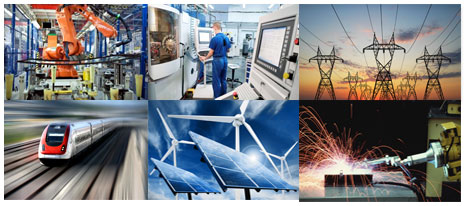In today’s rapidly evolving technological landscape, the demand for robust and reliable networking solutions in industrial settings has never been higher. One such critical component of industrial networking is the industrial Ethernet switch. Let’s delve into these switches’ various applications and significance in different industries.
Introduction
Industrial ethernet switches are specialized networking devices designed to meet the unique demands of industrial environments. Unlike traditional switches used in office settings, industrial ethernet switches are built to withstand harsh conditions, ensuring seamless communication in challenging industrial settings.
In industrial automation and control systems, the reliable and efficient transfer of data is paramount. Industrial Ethernet switches are crucial in facilitating communication between devices in these environments, forming the backbone of industrial networks.

Applications of Industrial Ethernet Switches
1. Manufacturing Facilities
In manufacturing plants, industrial switches play a vital role in connecting machinery, robots, sensors, programmable logic controllers (PLCs), human-machine interfaces (HMIs), and other automation systems on the factory floor. This forms an industrial ethernet network that helps integrate the various automation components and control systems. Industrial ethernet switches ensure real-time communication between all the devices to enable seamless production processes.
2. Process Industries
Process industries like oil and gas, chemicals, power generation, mining, and water treatment use switches in potentially hazardous environments. Located on the plant “process floor”, switches link field instruments, I/O modules, drives, and controllers that monitor and control industrial processes. They must withstand wet, dirty, and corrosive conditions to maintain critical connectivity.
3. Warehousing and Distribution
Distribution centers and warehouses rely on industrial ethernet switches to network conveyor systems, scanners, labeling machines, and sortation equipment involved in logistics operations. They connect these components to upstream and downstream systems such as warehouse management (WMS) for end-to-end visibility and tracking of inventory movements.
4. Transportation Infrastructure
Transportation hubs like ports and airports install industrial ethernet switches for cargo and container management applications. They integrate scanners, cranes, trucks, and other assets to digitally monitor freight movement. Industrial ethernet switches also network onboard systems in vehicles, vessels, and aircraft for command and control.
5. Building Automation and Control
In building automation, switches network HVAC, access control, lighting, and fire safety systems require harsh-rated performance. They interface field controllers, sensors, and actuators to central Building Management Systems (BMS) for environment monitoring and energy management.
6. Renewable Energy Applications
At renewable energy plants such as wind and solar farms, switches link supervisory control and data acquisition (SCADA) servers, turbines, inverters, and related devices to enable remote operations and maintenance. They facilitate the reliable transmission of power generation data.
7. Military and Mobile Applications
For mission-critical mobile command and control, industrial ethernet switches provide networking on naval ships, ground vehicles, aircraft, and more. Designed for extended temperature ranges and vibration, they withstand deployment in rugged scenarios.
8. Outdoor Applications
Industrial ethernet switches support broadband connectivity for smart city infrastructure like traffic management systems and outdoor sensors. They operate in extreme weather and ensure the uptime of networks installed in public spaces.
Conclusion
Industrial ethernet switches are indispensable in ensuring reliable communication and control in diverse industrial applications. Their robustness, advanced features, and adaptability make them a cornerstone of industrial networking.


